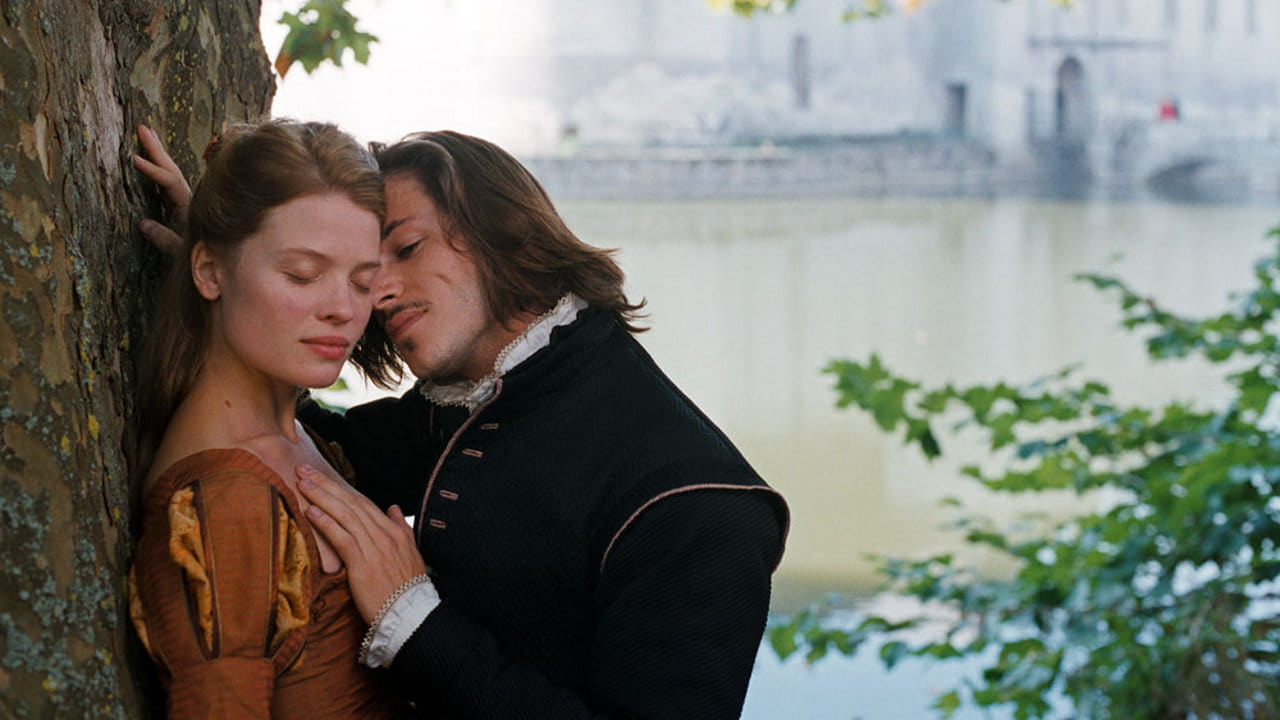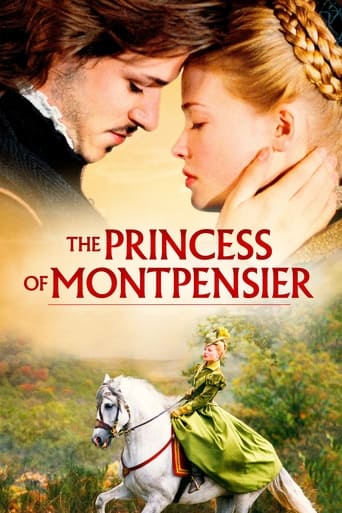

Yes, it is a good movie from Bertrand Tavernier, my only critic: I am french and some actors like the Prince and even De Guise at time, not only they are poor actors but it was often very difficult to understand what they were saying, they never learned to speak and use their respiration, it was incomprehensible.The fights and the duels are not the best Tavernier knows how to shoot, but it is not so important, they were accessories to the plot.The costumes, the sets...all without any special effects are beautiful, even if the story fits perfectly the french country with its castles still standing like they were at the time of the story, Tavernier has had the right eye to capture the beauty of it. Melanie Thierry et Lambert Wilson were perfect.
... View MoreBasing a long film on a short story is usually a risk; the story often runs thin before the long film is complete. This is most assuredly NOT the case in Bertrand Tavernier's decision to adapt (with François-Olivier Rousseau) the short story 'La Princesse de Montpensier' written by Marie de LaFayette (1634 - 1693) and published anonymously in 1662. Of note, La Fayette's most famous novel was 'La Princesse de Clèves' (1678), first published anonymously in March 1678. An immense success, the work is often taken to be the first true French novel and a prototype of the early psychological novel. This film is one that both entertains in the manner of the great epics of the screen, but also teaches us about the religious differences between the Catholic and the Huguenots (Prostestants) during the 16th century while at the same time addressing from a near feminist point of view the manners of courtly versus passionate love in that fascinating period.Very briefly, Princesse Marie de Montpensier (Mélanie Thierry) is married to Prince Philippe de Montpensier (Grégoire Leprince-Ringuet) in a marriage of convenience arranged by Marie's father: the rare beauty of Marie attracts the attention of all men, a fact that drives Philippe to rages of unfounded jealousy. France is in the midst of religious war and Philippe is off at war with his tutor Comte de Chabannes (Lambert Wilson): after a particularly grueling battle in which Comte de Chabannes kills a pregnant woman and a child he informs Philippe that he can no longer stomach war and asks to return to the palace where he will continue being the tutor of Marie in Philippe's absence. Marie and Chabannes become close as he teaches her to read and write - during which time Chabannes secretly falls in love with Marie. But there are other men who would woo her: Duc d'Anjou (Raphaël Personnaz)- the youngest son of Henry II of France and Catherine de' Medici (Christine Brücher), the man history books have described as gay and who courted England's Elizabeth I unsuccessfully, and Marie's childhood friend, the handsome but battle-scarred Henri de Guise (Gaspard Ulliel). The story successfully eaves the course of the war between the religious factions and the drives and promises and desires of the four men to win the affection of Marie. Court intrigues, duels, secret meetings and the power of nobility push the story to a surprising but well designed end; passion of the heart can be destructive.Mélanie Thierry is brilliant as Princess Marie de Montpensier and is supported by equally fine performances by Wilson, Ulliel, Personnaz, Leprince-Ringuetand a very strong supporting cast. The period costumes and customs are perfectly realized, the cinematography by Bruno deKeyser and the musical score by Philippe Sarde enhance the rich tapestry of this Tavernier masterpiece. In French with English subtitles. Grady Harp
... View MoreThe Princess is sumptuously filmed, with a great eye for setting and costume. The eponymous princess is very well acted. So why is there a slight air of disappointment when you get to the end. Partly it is because her husband and the pretty boy who would be her lover, are just a trifle wooden; the great weakness though is the fight scenes. They are filmed well but lack credibility. You can sense the rehearsals and guess what will happen next. The battle scenes are just confusing, not in the fog of war sense, but in having no explanation why a soldier would jump off an unwounded horse to fight on the ground. It may have looked exciting, marginally, but verged on the ridiculous. That aside, the story bounds along quite well and will take your mind off the next banking crisis.
... View MoreMy love affair with cinema started as a teenager with a chance viewing of Patrice Chéreau's La reine Margot (1994) late one night on TV. It's a lavish costume drama set at the same time as The Princess of Montpensier including some of the same characters, both with key scenes set during the St Bartholomew's Day Massacre in 1572. So this felt like a return to the beginning for me, a special occasion.I feared it may have been a wasted ticket at the start as it opens with a rather bombastic action sequence that looked too staged and was drowned by Hollywood "big music", ludicrous percussion-heavy seat-shaking stuff. Perhaps Tavernier caught a bug working in the States on In the Electric Mist. Of course such antics may be right up your street if you are a Gladiator fan. By the way I felt the first scene portrayed the Comte de Chabannes and cohorts as being too reckless with their lives, unrealistically so.However the film improved, and Chabannes cut an iconic figure in his odd Spanish hat. The film was based on the short story of the same name by Madame de La Fayette, which I definitely intend to read now.The drama concerns the Princess of Montpensier (Mélanie Thierry) who is loved by four very contrasting men. Will she choose the right one? Haha, that would not be very interesting now would it? I think it's somewhat of a breakout role for the stunning Mélanie Thierry, who has been in some potboilers as well as having a very gamine role as the passive object of Danny Boodmann T.D. Lemon Nineteen Hundred's affections in Giuseppe Tornatore's The Legend of 1900 back in 1998. She is the very essence of the type of woman that a man develops amour fou for. The best casting decision I've seen all year for sure, though it would have helped if Tavernier had been a better director of actors.I did feel there was a strange lack of pathos in the movie, I think generally a director requires actors to emote, to show what they are thinking on their faces. This is the great artifice of cinema. I've seen a few Tavernier films and I don't think he likes to get them doing that. In a way I think that makes the movie quite abstract. The plot is so sheerly powerful by itself that I was enraptured.I like the way the movie quotes the sentiments from Hebrews Chapter 11 Verse 1: "Now faith is the substance of things hoped for, the evidence of things not seen." Faith is something that we've lost to a degree in western life, making life seem a pointless charade. Good watching. 10/10 as I'm a sentimental fool.To Claire, impertinently.
... View More